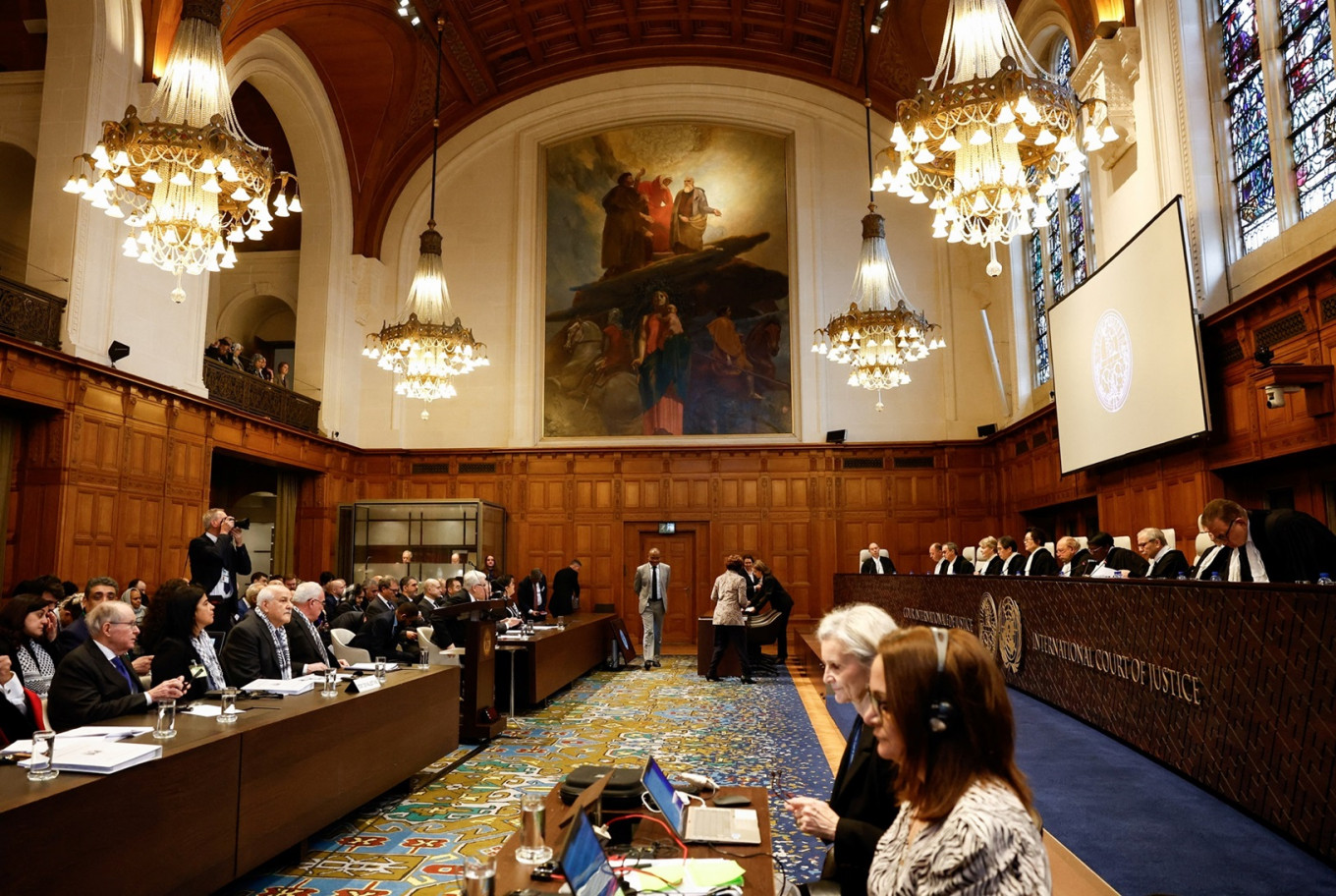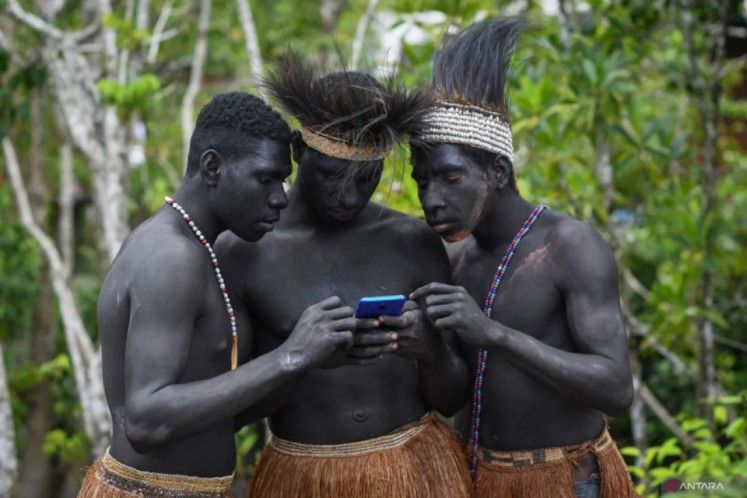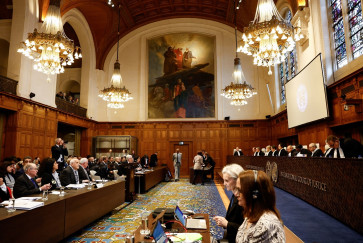Popular Reads
Top Results
Can't find what you're looking for?
View all search resultsPopular Reads
Top Results
Can't find what you're looking for?
View all search resultsShould we believe the rape victims, or believe Hamas?
Denial and defense of crimes such as “rape and gang rape” not only perpetuate the impunity of the criminals, but virtually guarantees both repetition and impunity of the same crimes.
Change text size
Gift Premium Articles
to Anyone
 People attend a public hearing held by the International Court of Justice (ICJ) to allow parties to give their views on the legal consequences of Israel's occupation of the Palestinian territories before eventually issuing a non-binding legal opinion in The Hague, Feb. 19, 2024. (Reuters/Piroschka van de Wouw)
People attend a public hearing held by the International Court of Justice (ICJ) to allow parties to give their views on the legal consequences of Israel's occupation of the Palestinian territories before eventually issuing a non-binding legal opinion in The Hague, Feb. 19, 2024. (Reuters/Piroschka van de Wouw)
S
trings of colorful lights hung across dusty tents invite the clapping and singing of smiling children. As Ramadan begins, despite so much loss Palestinians strive to ensure their families can have predawn meals and dinners after the 15-hour fast. More importantly, they pray everyone is alive by the end of the day.
The International Court of Justice, where Israel is on trial at The Hague, has yet to reach a verdict on Israel’s alleged “genocide” and other war crimes; while Israel insists that all the civilian casualties are unfortunate “accidents”. Nevertheless, most Israelis support the war, we are told, fearing attackers could fly over their gates again.
Recently the United Nations released its “preliminary findings” on sexual violence crimes in Israel and the occupied West Bank. The report of the UN mission headed by the secretary-general’s special representative on sexual violence in conflict, Pramila Patten, called for “fully fledged investigations into all alleged violations”.
So ahead of International Women’s Day on March 8 we faced grotesque reminders of civilians’ experience, particularly that of women, in armed conflict. Palestinian sympathizers join the loud denials of the “reasonable grounds to believe that conflict-related sexual violence occurred at several locations across the Gaza periphery, including in the form of rape and gang rape, during the [Oct. 7] 2023 attacks.” Or like the apologists they shrug off the assumed uncontrolled frenzy of the long-occupied “Davids” who broke through the fortress of “Goliath”.
As the formerly colonized we know that life-risking attempts to break free are inevitable. Yet denial and defense of crimes such as “rape and gang rape” not only perpetuates the impunity of the criminals, but virtually guarantees both repetition and impunity of the same crimes.
Whether the crimes took place in households, schools, workplaces, streets or in political conflicts, Indonesia’s sexual-violence criminals largely walk free or have received light sentences. Silenced victims through their trauma, fear and shame are “normal” compared with the few who can speak up against powerful perpetrators. The denials and demands to “produce” victims’ testimonies is reminiscent here, for instance, of the angry taunts against the May 1998 fact-finding team.
Even worse than all the unimaginable atrocities is the UN team’s conviction that the crimes are still “ongoing” against hostages, the mission reports “clear and convincing information that some have been subjected to various forms of conflict-related sexual violence including rape and sexualized torture and sexualized cruel, inhuman and degrading treatment”.


















